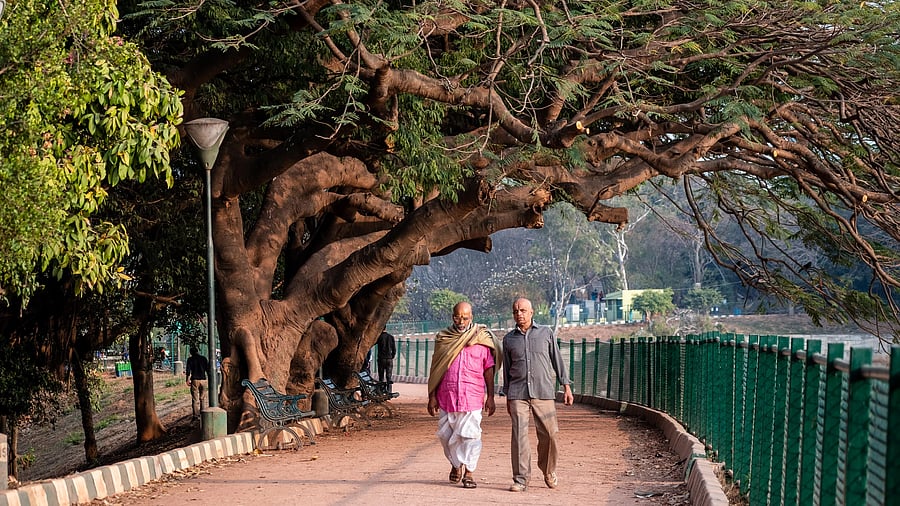
The Lalbagh Botanical Garden is one of Bengaluru’s most iconic green spaces, and holds immense ecological, historical, and cultural value.
FILE PHOTO
Bengaluru: Civic group Citizens for Citizens (C4C) has strongly opposed the proposed Rs 26,000-crore Tunnel Road Project (TRP) between Hebbal and Central Silk Board, warning it would cause "all-round damage" to the Lalbagh Botanical Garden — the city's prominent lung space.
In a statement released on Monday, C4C described the project as a “disaster in the making”, claiming nearly six acres of Lalbagh land would be lost, potentially causing irreversible harm to its trees, soil, lake, and ecosystem.
“Trees will be cut and Labagh’s soil, water, air, lake and the rock will all bear the brunt,” the release said. The group has urged the state government to immediately halt the plan, rallying support under the hashtag #SaveLalbaghSaveBengaluru.
Environmentalist Dr Yellappa Reddy, also former chairman of Bangalore Environment Trust, echoed concerns, emphasising the geological sensitivity of the Lalbagh region.
He said the Dharwad Craton rock system, extending from MM Hills right up to Ballari, protects peninsular India from earthquakes and there has already been plundering of granite in parts of this belt. Lalbagh rock rupture can even lead to water leakage from the Lalbagh Lake into nearby institutions like Nimhans, he said.
Reddy also raised structural safety concerns, pointing out that the tunnel's planned depth of 50 to 100 feet could jeopardise high-rise buildings in the vicinity.
He urged authorities to consult the National Institute of Rock Mechanics before proceeding, and called on Bengaluru’s elected representatives to respond to citizens' fears. “Elected MLAs and MPs of Bengaluru have a lot to answer to the people of Bengaluru. At no cost should Bengaluru Amma be forced to shed tears,” he said.
The tunnel road will cut across Lalbagh with grave consequences. Repeated pleas for early, fair, and open-minded public consultation have gone unheeded, while authorities bulldoze through with this project, which will bring disaster for Bengaluru. Meanwhile, simpler, cheaper, eco-friendlier, safer, and faster alternatives are being ignored, said Rajkumar Dugar, convener, Citizens for Citizens (C4C).
Significance of Lalbagh Botanical Garden
Historical legacy: In 1935, megalithic burial chambers were excavated within the present-day Lalbagh. The garden also houses at least two veeragallu (hero stones), ancient memorials commemorating warriors.
Wildlife heritage: A century ago, Lalbagh housed a zoo with tigers, bears, rhinos, black panthers, kangaroos and even an orangutan. A deer park also existed here until just a few decades ago.
Agricultural contribution: The well-known Bengaluru brinjal or Seemebadnekai is believed to have its beginnings in Lalbagh.
Landscape transformation: The picturesque Lalbagh Lake was once a stone quarry.
Threat from the Tunnel Road Project
The proposed 16.7-km tunnel road will cut across and run under Lalbagh for about 700 metres, with two tunnels, two long ramps and a massive ventilation shaft. The depth will range between 50 and 100 feet below ground; and both ramps will slope towards the surface.
About 23,800 square metres (almost 6 acres) of Lalbagh will be acquired along the 1.1 km Siddapura Road between Ashoka Pillar and Marigowda Junction.
